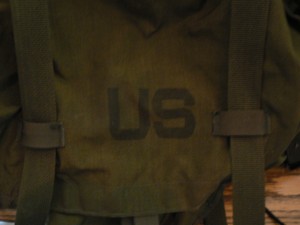 The path is narrow, a thin line dividing uphill and downhill, traced in the rock over the contours of the mountain. Small flowers, delicate and blue and white and yellow, cower in the crevices, hoping to garner enough sunlight and water and somehow keep their fingerhold on the rock long enough to grow the few inches which is all they’ll get. I wonder if they draw inspiration from the occasional pine tree rooted deep in the seemingly impenetrable rock. Somehow things survive here.
The path is narrow, a thin line dividing uphill and downhill, traced in the rock over the contours of the mountain. Small flowers, delicate and blue and white and yellow, cower in the crevices, hoping to garner enough sunlight and water and somehow keep their fingerhold on the rock long enough to grow the few inches which is all they’ll get. I wonder if they draw inspiration from the occasional pine tree rooted deep in the seemingly impenetrable rock. Somehow things survive here.
“That’s the New Jersey state flower,” my husband says.
“The pretty yellow one?”
“No, the spiky one. The nettle, there.”
(Actually, given New Jersey, that makes a kind of sense.)
You can see further – both distance and vertical. The next ridge may be miles away. From a single spot, you can see both the summit you desire and the fall you fear.
The rocks are scored with sharp lines, straight faults in the rust-red rock of the walls. Iron is more often paired with the word grey to describe color, but here everything associated with iron is stained red, brick and carmine and carnelian.
A group behind us is scuffing their way up the trail at a much faster clip than we are moving. One of them, a young man with wild hair stuffed under a ballcap, is excitedly explaining… something. I wonder briefly whether he has some kind of behavioral disorder and then realize he could also be explaining the plot of a book. Maybe even one he’s working on currently. Ah, writers. The line between us sounding normal and us sounding like complete nutters is often defined only by the makeup of our audience.
This year, there is more water in the riverbeds, and the sounds of the rushing water, like traffic that never gets a red light, is audible long before the whitecaps and glassy green intervals between them before the water pushes against another obstruction in its way can be seen.
Then the storm comes.
Thunder hits the walls of the canyon, breaking into sharper sounds than you hear in the city, mirroring the rock edges of the cliffs, unfiltered by trees and buildings.
Lightning is brighter, white instead of yellow and orange.
Raindrops are bigger, hitting hard enough that you have to squint to see whether the water is liquid or frozen into soft hail.
I start to do the kind of jog that hopefully looks more like I’m worried about my camera than freaked out by the lightning. We started down at the first clap of thunder and now we’re only fifty yards from the car. Surely lightning won’t hit us in the next fifty yards.
You have a 1 in 3,000 chance of being struck by lightning in your lifetime, I remember reading somewhere. For comparison, I also read someplace that the chance of getting signed by a literary agent is 1 in 10,000. Possibly someone just made that statistic up.
I start trotting faster anyways.
We make it to the truck unstruck. I’m reminded how quickly the mountains can become dangerous, which is the risk you accept when you go to them.
I’m also reminded that the writing brain is always working, even when the legs are hiking.
